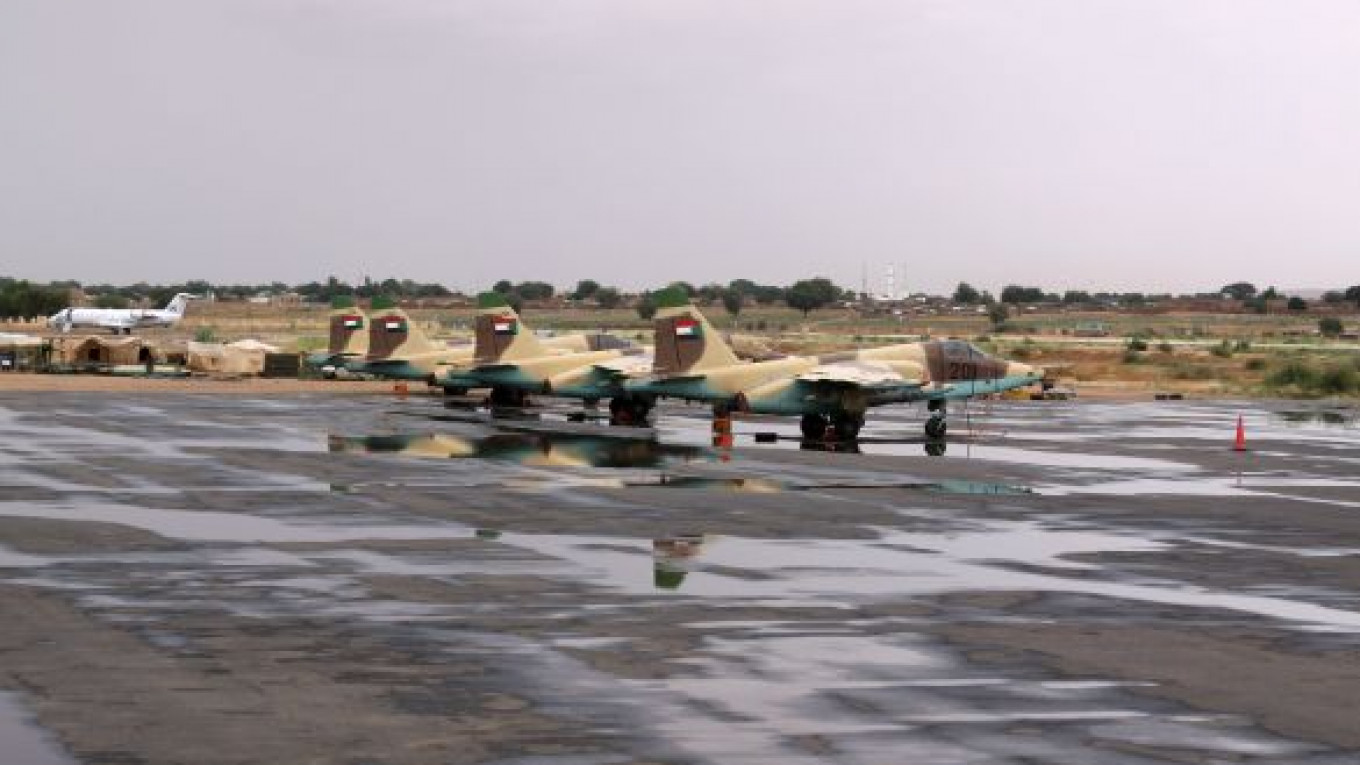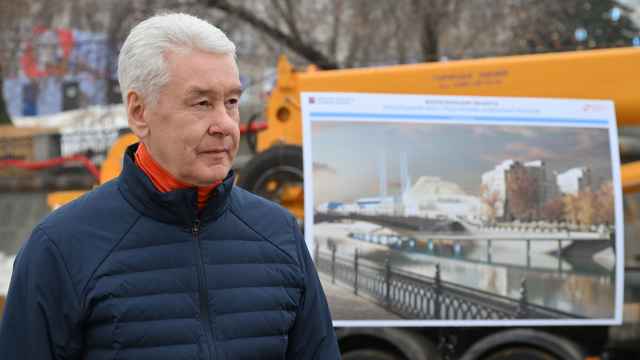UNITED NATIONS — Sudan has acquired 15 Russian-made Su-25 "Frogfoot" jets from Belarus since 2008, and a controversy is brewing over whether the Sudanese government has used them for air attacks in Darfur in defiance of a UN arms embargo.
The ground attack jets were in plain view of Security Council diplomats during a visit this month to Sudan's conflict-torn region.
The presence of the jets in Darfur was not proof by itself that they have been used in attacks on Darfuris but was "highly suspicious," said one Security Council diplomat, speaking on condition of anonymity.
Four of the jets appeared in a Reuters photograph taken on Oct. 8 as Sudanese officials were bidding farewell to the 15-nation Security Council delegation at the airport in El Fasher, North Darfur, in Sudan's west.
Darfur rebels say the government had been bombarding their positions in Jabel Marra in the run-up to, and during, the Security Council's Oct. 5-9 visit to Sudan.
A report by a UN expert panel that monitors compliance with the 2005 embargo indicates that some of the 15 Su-25s may have been used in military operations in Darfur, diplomats said.
Sudan's government had assured Belarus that the jets would not be used in Darfur and told the expert panel that this promise had been kept, the diplomats said on condition of anonymity. The report has not been officially released, but diplomats have disclosed its key findings.
The arms embargo does not ban supplying military hardware to Sudan, but nations are required to have guarantees from Sudan's government that the arms will not end up in Darfur.
A Reuters reporter accompanying the delegation took the photograph of the Su-25s in full view of Sudanese and UN security officials and Security Council diplomats.
The office of Sudan's UN ambassador, Daffa-Alla Elhag Ali Osman, acknowledged receiving an e-mail from Reuters asking about the jets and had no immediate comment. The UN mission of Belarus did not answer its telephone or respond to an e-mailed query.
A Message from The Moscow Times:
Dear readers,
We are facing unprecedented challenges. Russia's Prosecutor General's Office has designated The Moscow Times as an "undesirable" organization, criminalizing our work and putting our staff at risk of prosecution. This follows our earlier unjust labeling as a "foreign agent."
These actions are direct attempts to silence independent journalism in Russia. The authorities claim our work "discredits the decisions of the Russian leadership." We see things differently: we strive to provide accurate, unbiased reporting on Russia.
We, the journalists of The Moscow Times, refuse to be silenced. But to continue our work, we need your help.
Your support, no matter how small, makes a world of difference. If you can, please support us monthly starting from just $2. It's quick to set up, and every contribution makes a significant impact.
By supporting The Moscow Times, you're defending open, independent journalism in the face of repression. Thank you for standing with us.
Remind me later.






